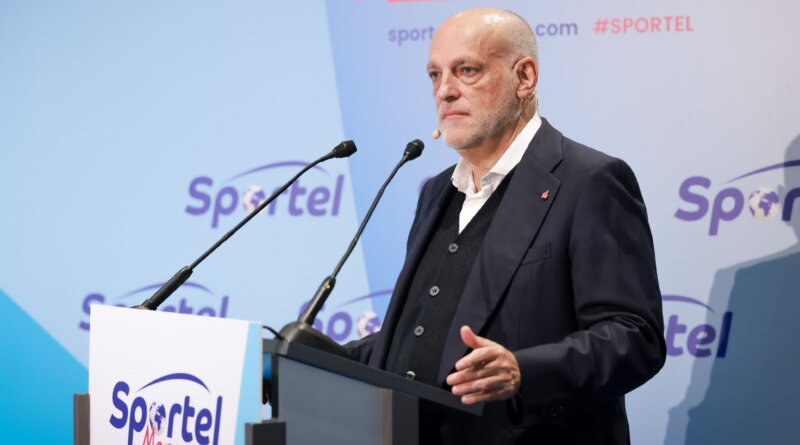La Liga President Criticizes Premier League for Inflated Salaries
La Liga president Javier Tebas has reignited the debate on football finances by openly blaming the Premier League for inflating players’ salaries and transfer fees. His pointed remarks have shed new light on the economic disparities among Europe’s top football leagues, sparking further dialogue about the future of financial sustainability across the sport.
La Liga President Javier Tebas Calls Out Premier League Spending
La Liga president Javier Tebas, a vocal advocate for financial responsibility in football, has accused the Premier League of distorting the global marketplace through excessive spending. According to Tebas, the English league’s ever-increasing transfer fees and player salaries are causing a ripple effect, driving up costs not just in England, but in Spain and across the continent.
“Premier League clubs consistently overspend, raising both salaries and transfer fees to unsustainable levels. This disrupts the balance in European football and threatens the competitiveness of other leagues, including La Liga,” Tebas explained in a recent interview.
Tebas Appeals to UEFA for Regulatory Intervention
Deeply concerned about the consequences of what he calls “financial doping,” Tebas has formally requested UEFA to intervene. His proposal: establish stricter regulations to ensure that no league can gain an undue advantage merely due to greater commercial clout.
Tebas argues that without intervention, the current landscape will lead to even wider inequalities. “We need UEFA to step in to guarantee the sustainability of all leagues, not just the richest. Financial fair play must be real, robust, and universally enforced,” he emphasized.
The Broader Impact on European Football
Tebas’ concerns are rooted in the observable effects of the Premier League’s spending power. Clubs in Spain, Italy, France, and Germany now face immense pressure to offer higher wages and transfer fees to retain or attract top talent. This, Tebas warns, makes it challenging for less wealthy clubs to compete, potentially diminishing the overall quality and unpredictability that fans treasure in European competitions.
“Football is in danger of becoming a closed shop, where only those with the deepest pockets can succeed. We must act before it’s too late,” Tebas cautioned.
Sustainability and the Future of La Liga
Tebas has long championed La Liga’s commitment to financial prudence, introducing strict salary caps and monitoring club spending. He believes this approach not only preserves the long-term health of Spanish clubs but also ensures that football remains competitive and accessible.
“By prioritizing sustainability, La Liga aims to protect both its clubs and its supporters from financial crises and unfair competition,” said Tebas.
Premier League’s Response and Broader Context
The Premier League, for its part, claims its commercial success is a result of superior global marketing, lucrative broadcast deals, and a competitive product that attracts worldwide audiences. English clubs argue that their spending is justified by revenue streams and does not violate UEFA’s existing Financial Fair Play (FFP) regulations.
However, critics—Tebas chief among them—insist that financial success shouldn’t translate into unchecked spending, but rather serve as an opportunity to promote competitive balance and sustainability.
Can UEFA Restore Competitive Balance?
The ball is now in UEFA’s court. Many observers believe that robust enforcement of FFP, closing loopholes, and introducing new measures could help rebalance the scales. This would ensure that sport, rather than mere financial muscle, determines success in Europe’s top leagues.
For more news and ongoing updates about the evolving financial landscape in football, visit for more news.
Opinion: A Watershed Moment for European Football?
Javier Tebas’s criticisms highlight a pivotal issue facing modern football. While the Premier League’s commercial power is undeniable, unchecked spending poses significant risks to the health of the European game. A fair and sustainable system benefits everyone—clubs, players, and, most importantly, the fans. The time may have come for UEFA to take decisive action and ensure European football thrives for generations to come.
Your global gateway to nonstop football coverage:
News Goal
Share this content:
